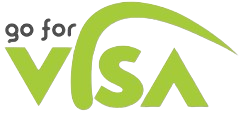
Certificate Programs: A Pathway to Skill Enhancement and Career Advancement
Certificate programs offer focused and specialized education designed to enhance skills and knowledge in specific fields.
Types of Certificate Programs
Certificate programs are short-term educational courses offered by universities, colleges, or professional organizations. They are designed to provide practical skills and knowledge in a particular subject area, typically requiring less time and financial investment compared to degree programs.
Types of Certificate Programs
- Professional Certificates: Offered in fields such as project management, human resources, marketing, finance, and IT. These certificates validate proficiency in industry-specific skills and enhance career prospects.
- Technical Certificates: Focus on technical skills and training in areas such as cybersecurity, software development, engineering, and healthcare. These certificates prepare individuals for specialized roles in technical industries.
- Language and Cultural Certificates: Provide proficiency in foreign languages or cultural studies, essential for careers in international business, diplomacy, and multicultural environments.
- Academic Certificates: Offered in academic disciplines like environmental studies, public health, education, and social sciences. These certificates deepen knowledge in specific academic fields and complement undergraduate or graduate degrees.
Benefits for International Students
- Skill Enhancement: Acquire practical skills and specialized knowledge relevant to your career goals, enhancing your professional competencies.
- Career Advancement: Improve job prospects and qualify for promotions or salary increases by demonstrating expertise and proficiency in specific fields.
- Flexibility: Choose from a wide range of certificate programs with varying durations and formats, including online, evening, or weekend classes to accommodate professional and personal schedules.
- Credential Validation: Earn a recognized credential that validates your skills and knowledge, enhancing credibility with employers and industry professionals.
- Skill Enhancement: Gain practical skills and specialized knowledge relevant to global industries, enhancing employability and career advancement prospects.
- Global Perspective: Acquire a broadened global perspective and cross-cultural understanding through diverse academic and cultural experiences abroad.
- Flexible Learning Options: Choose from a variety of program durations and formats, including online, evening, or intensive courses to fit academic and personal schedules while studying abroad.
Application and Requirements
- Admission Requirements: Typically include a high school diploma or equivalent. Some programs may require specific language proficiency tests (e.g., IELTS, TOEFL) or prerequisites related to the chosen field of study.
- Application Process: Submit required documents such as academic transcripts, letters of recommendation, a statement of purpose outlining career goals, and proof of financial support.
- Visa and Immigration: Navigate visa requirements for studying abroad, ensuring compliance with regulations and deadlines specific to your chosen destination.
Financial Considerations
- Tuition Fees: Costs vary by program and institution. Explore scholarship opportunities, grants, or financial aid options available for international students studying abroad.
- Living Expenses: Estimate living costs including accommodation, food, transportation, and health insurance while studying abroad.
Address
Chappal karkhana, Ward No. 4, Maharajgunj, Kathamndu, Nepal
Phone
+977-1-4015709
